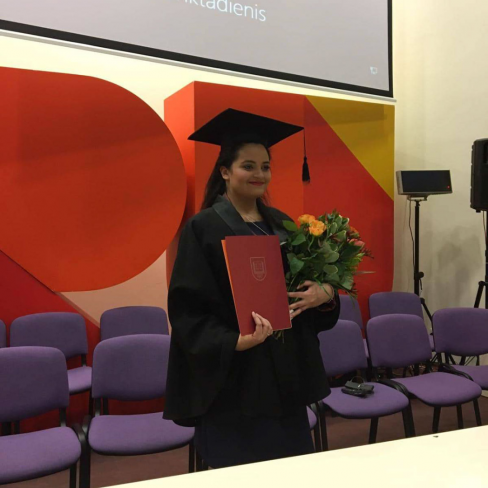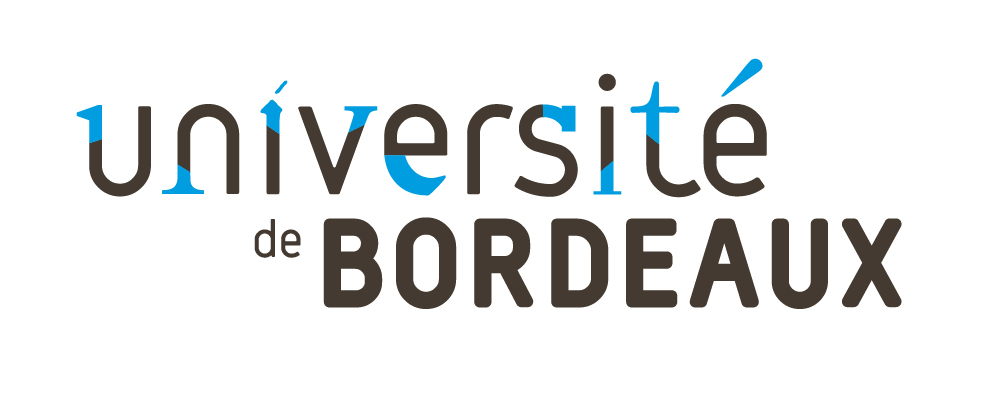STUDY PROGRAMME PLAN
|
Course units |
ECTS credits |
|
1st YEAR |
60 |
|
1 SEMESTER |
28 |
|
Compulsory course units |
18 |
|
Institutional System of European Union |
5 |
|
European Union Foreign Policy and External Relations |
4 |
|
Internal Market Law |
5 |
|
Economic and Monetary Union |
4 |
|
Alternatively elective course units |
10 |
|
Area of Justice Freedom and Security |
5 |
|
Economic, Social and Territorial Cohesion Policy |
5 |
|
European Union Competition Law |
5 |
|
2 SEMESTER |
32 |
|
Compulsory course units |
22 |
|
Internship |
10 |
|
International Economic Questions |
4 |
|
European Union Litigation |
4 |
|
Common Commercial Policy |
4 |
|
Alternatively elective course units |
10 |
|
European Union Environmental Law |
5 |
|
Privacy and Data Protection |
5 |
|
Public Procurement Law |
5 |
|
2nd YEAR |
30 |
|
3 SEMESTER |
30 |
|
Compulsory course units |
30 |
|
Research methodology and new technologies |
6 |
|
Master Thesis Project |
6 |
|
Master Thesis |
18 |
General competences and learning outcomes
1. Personal and Social abilities
- Ability to demonstrate skills of self-study, work organization and planning, that allow to purposefully and independently continue studies, to improve in professional activity and to adapt to the changing multicultural work environment.
Subject specific competences and learning outcomes
2. Knowledge and its application
- Ability to demonstrate knowledge of EU as a supranational organization, to know the specific features of its legal system, its structure of governance and institutions, of the judicial procedures of the EU and the legal regime of responsibility for violations of EU law, fundamental principles governing EU internal market and its regulatory trends;
- Ability to demonstrate knowledge of various EU policy areas and their legal framework and the ability to preview future trends and changes in the governance of the EU taking into account the conditions in changing global market, economic development and social problems of different countries.
3. Research skills
- Ability to critically analyse, interpret, compare and assess primary and secondary EU law and other sources of EU law;
- Ability to apply the research methodology and to formulate logical, clear, unambiguous and well-grounded findings based on knowledge and practice and proposals to improve EU legal regulation;
- Ability to convey the proposals to audience of specialist and non-specialist in a concise manner orally and in writing.
4. Special abilities
- Ability to analyse complex legal disputes concerning the interpretation and application of EU law applying EU law, to deal with both known and unfamiliar situations presenting well-grounded decisions on disputes concerning the interpretation and application of EU law;
- Ability to work in a group or individually, systematically applying theoretical knowledge and the results of scholarly research;
- Ability to deal with legal issues and problems arising in various EU policy areas preparing legal documents, providing consultations, services of representation, dispute resolution and others, to adopt independent, socially responsible, ethical, well-grounded decisions based on EU and national legal regulation oriented towards the development and improvement of the EU legal basis.
Programme is implemented together with the partner University of Bordeaux.
Classes are held in Mykolas Romeris University, Vilnius, in person, on weekdays (normally in the evenings from 4:15 PM to 9:10 PM). Study subjects are taught in intensive modules, with one subject being studied at a time (normally, one subject is taught and finished in 3 weeks).
Important: Foreign students must arrive to the University by September 1, 2025, unless a later program start date is specified. Exceptions can be made only for valid reasons, and students must participate in studies remotely until their arrival. If a student fails to arrive by the specified deadline without valid reasons, the University will notify Lithuania’s Migration Department about the termination of their study agreement.
- Choose a study programme
- Fill in the application form at apply.mruni.eu
- Pay the non-refundable application fee (for non-EU citizens – 100 euros, for EU-citizens, MRU alumni, and Ukrainians – 50 euros)
- Receive your application evaluation results
- Confirm your acceptance by paying the first-year tuition fee and 50 euros registration fee (non-refundable)
- Sign the study contract
- Start Temporary Residence Permit application procedure
- Register to studies
Required documents:
- Bachelor degree or equivalent first university degree diploma in Law (3-year study duration minimum) (except for French students who need a Master 1 level)
- Academic transcripts of each study year
- Document proving English language level
- Motivational letter (please note that the authenticity of the motivation letter will be verified using specialized software, so it should be written without AI assistance)
- Passport copy
Additional requirements:
- Basic EU law knowledge
Additional educational documents might be required depending on the country of residence.
Provided documents must be in color, have no cut corners (high quality scan).
Notes:
- The minimum 60% of maximum possible GPA is required in order to be considered for admission.
- By submitting the documents applicant agrees for one’s information to be shared with other institutions that the University might refer to while processing the academic verification.
- Applicants might be asked to participate in additional knowledge evaluation.
Required level – B2
Assessments of English language proficiency certificates equivalent to level B2:
- TOEFL IBT 72-94
- IELTS 5.5-6.5
- PTE score 59-75
- DUOLINGO 100-125
If you do not have a certificate proving your English language proficiency level, you can take the University Online English language level test. You will be able to choose this option while filling in the application. The test is free of charge.
Certificate is not required if your native language is English or if your previous studies were conducted fully in English language.
- If the original educational documents/transcripts are in English, Lithuanian, French or Russian with an apostille (if required) on the scanned original, no translation needed.
- If original educational documents/transcripts are not in English, Lithuanian, French or Russian languages, then they have to be supplemented with an official translation.
- The official translation has to be confirmed with the sworn translator’s signature or official notarization.
- Accepted students shall present their original educational documents/transcripts to the International Office upon arrival to begin their studies.
Country Specific Requirements can be found here.
Recognition of Foreign Qualifications
- The evaluation and recognition of prior qualifications is a part of Mykolas Romeris University (MRU) admissions process.
- By submitting the online application you confirm that the documents are legitimate and that MRU can verify the authenticity of the documents by contacting its issuing authority and national ENIC/NARIC centre.
- Documents uploaded must be in good condition and in full colour. Documents issued in languages other than English, French, Russian or Lithuanian must be accompanied with an official translation into English or Lithuanian.
- Before you apply make sure that you have a complete documentation package and that your qualifications are giving access to higher education according to the study programme level you are applying for at the MRU.
Recognition Criteria
- The purpose of an assessment is to compare a foreign qualification with a similar level qualification awarded in Lithuania according to quality, profile, content, workloads and learning outcomes.
- Your qualification will be assessed according to specific requirements for the programme you are applying for and whether your academic results are sufficient for studies at the MRU.
Right to Appeal
Recognition decisions can be appealed against to the Academic Recognition of Foreign Qualifications Concerning Higher Education Appeal Committee under the Lithuanian Ministry of Education and Science.
All appeals with supporting documents must be submitted to:
Centre for Quality Assessment in Higher Education
Ph.: +37052104778
Email: recognition@skvc.lt
Address: SKVC, A. Goštauto st. 12, LT-01108, Vilnius, Lithuania
The procedure of evaluation and recognition of academic qualifications
Application fee (non-refundable):
- for Non-EU citizens – €100
- for EU citizens, MRU Alumni, and Ukrainians – €50
Registration fee (non-refundable):
- €50
Tuition fee (EU/Non-EU citizens) per 1 academic year: €4606 per one academic year (2025-2026).
Payment information will be provided in the invoices issued in your online application form.
Student continues to pay the same tuition fee which was implied at the time of the admission.
E-mail: study@mruni.eu
Phone: +370 5 271 4700
WhatsApp: +370 6 564 6682
Office: I-122

